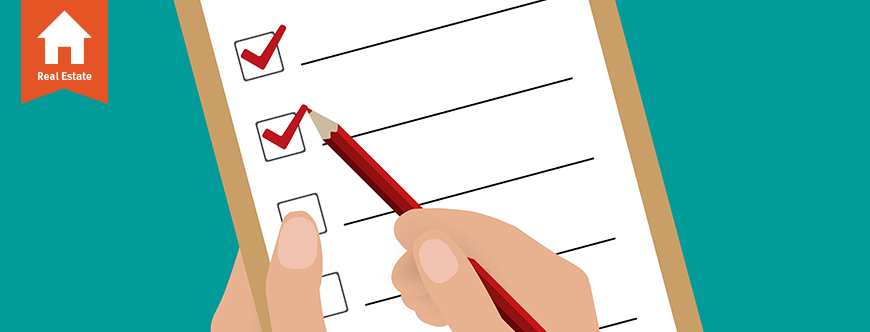Some examples of business real estate properties include workplace (office), restaurants (retail), and big home buildings (multi-family). Industrial genuine estate: As the name recommends, these residential or commercial properties serve an industrial organization function. Some examples consist of shipping or storage warehouses, factories, and power plants. Land: Land generally consists of undeveloped residential or commercial property with no structures on it.
Landowners can make money through land usage, such as farming, or upon the advancement or sale of the land. In addition to home types, there are three primary ways to earn money from genuine estate investments: interest from loans, appreciation, and rent. Interest from Loans (or, in the parlance of realty, "financial obligation"): A real estate loan is a plan where financiers provide money to a real estate developer and generate income from interest payments on the principal of the loan.
Depending upon the variety of loan providers, there can be one or several types of debt within the capital stack of loans. Kinds of debt include senior financial obligation, junior debt, and mezzanine financial obligation. Financial obligation can also be protected or unsecured. This distinction specifies an investor's rights in the occasion of a residential or commercial property's foreclosure upon the default of a loan.
Interest payments might offer a way to make passive earnings from real estate investments. Gratitude: As with the ownership of any equity, property ownership provides a financier the capability to make cash from the sale of that equity. Take a look at the site here The gratitude, or increase in the value of a home in time, represents the prospective profit readily available to an investor when that residential or commercial property is sold.
Some Known Facts About How To Get Real Estate License.
Equity can normally be categorized as preferred equity or typical equity. Equity ownership can be an active or passive financial investment depending upon the position of the investment within the capital stack. Lease: A home can be leased by owners to earn earnings from rental payments. Similar to the earnings produced from a debt investment, rental earnings can provide a routine earnings stream.
Rental payments might provide the capacity for passive earnings depending https://telegra.ph/unknown-facts-about-how-to-become-a-real-estate-agent-in-mn-11-03 upon the investment method. Each classification of realty and kind of financial investment carries its own set of risks and rewards. Despite how you invest in real estate, it is essential to select financial investments wisely by checking the strengths and weak points of opportunities through a strenuous underwriting process.

Numerous investors like to utilize the predicted rate of return as an essential metric when examining realty (how long does it take to get real estate license). Nevertheless, more experienced investor will typically turn to capitalization rate, or "cap rate," as a preferred method to examine a chance. There are lots of ways to invest in property with differing amounts of cash, and varying degrees of time dedication, capital, investment horizons, risk, and return potential.
Realty investment techniques fall under 2 groups: active and passive investments. Here are eight basic ways to purchase realty with methods varying from extreme, high-effort to hands-off, low-effort. Active property investing necessitates considerable personal understanding of real estate and hands-on management or delegation of obligations. Active financiers can work as investor part-time or full-time, depending on the number of their financial investment residential or commercial properties and the nature of those financial investments.
The smart Trick of How Much Does The Average Real Estate Agent Make That Nobody is Talking About

Because of this, active genuine estate investors require a deep understanding of how to purchase property, including monetary acumen, and negotiation skills to improve their cap rate and overall return on financial investment. House-flipping is the most active, hands-on method to invest in property. In a home flip, a financier purchases a house, makes changes and restorations to enhance its worth in the market, and after that sells it at a greater price.
This eats away at their return potential when they sell it. Investors can fix or renovate the home to increase its list price or sell it without making any repair work when its value in the real estate market increases due to outside elements. If you view HGTV, then you've most likely enjoyed a house get transformed in under thirty minutes and sold for a substantial revenue by house-flipping professionals.
While house-flipping is interesting, it likewise needs deep financial and property understanding to make sure that you can make over the house within time and spending plan constraints to guarantee that you generate income when the house is sold. The success and the financial concern of a home flip falls completely on the investor.
It's a high-pressure and high-stakes real estate investment that produces terrific TV, however an excellent financial investment chance only for particular educated investors. Another property-flipping strategy is wholesaling. Wholesaling is when an investor signs an agreement to purchase a property that they believe is priced listed below market price and then offers that contract quickly to another investor at a higher rate for a profit.
The How To Invest In Real Estate With No Money PDFs
A financier will sign a contract to buy a home and put down an down payment deposit. Then, they quickly attempt to sell the house to a house-flipper at a premium, making an earnings. Basically, a wholesaler gets a finder's charge for brokering a house sale to a house-flipper (what does pending mean in real estate). Nevertheless, unlike conventional property brokers, a wholesaler uses their position as the contracted homebuyer to broker the deal.
It demands noise due diligence and access to a network of potential buyers in order to offer the property within a brief timeframe at a lucrative rate. Otherwise, like house-flipping, you risk not making a revenue or, worse, losing money. Rental properties require hands-on management, too, but they have a long-lasting investment horizon.
Home owners make regular capital usually on a regular monthly basis in the type of rental payments from tenants. This can provide a consistent, reputable earnings stream for financiers, but it likewise requires a lot of work or delegation of duties to ensure that operations run efficiently. Initially, you need to discover tenants for your residential or commercial property.
You are also responsible for performing background screenings for prospective renters (if you pick to) and for offering legally sound lease contract contracts to tenants - how long does it take to get real estate license. For each month that you do not have an occupant, you miss out on income from your financial investment. When you have occupants, you have a fair bit more resultant responsibilities.
The How To Become A Real Estate Agent In Illinois Diaries
Depending upon the number and size of rental properties that you own, property management can be a part-time or full-time job. Some real estate financiers who do not want to handle the management of a home contract a residential or commercial property management company for a repaired fee or portion cost of revenues. This takes some weight off an investor's shoulders, changing the property into more of a passive investment.
Short-term Great post to read rental residential or commercial properties allow homeowners to rent out their houses on a nighttime basis, generally as an option to a hotel. Short-term leasings are comparable to rental homes, however they specify to homes and generally only offered for short-term durations. Unlike conventional leasings, short-term leasings, generally powered by companies such as Airbnb and VRBO, let you lease a portion or the totality of your home.